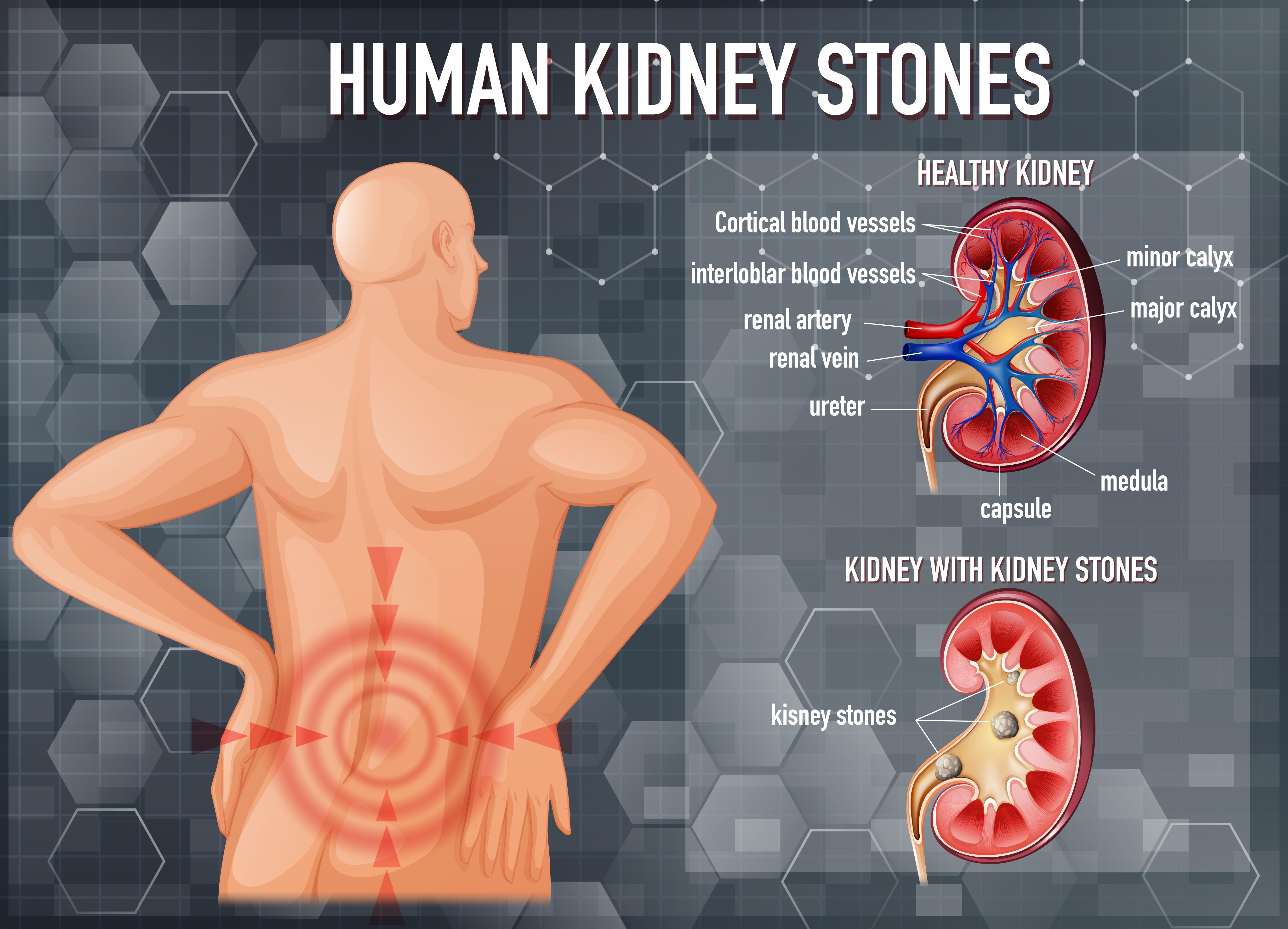Kidney stones, also known as renal calculi, are a common yet painful medical condition affecting a significant number of people worldwide. In India, with the increasing prevalence of kidney stones due to dietary habits, dehydration, and other factors, effective and affordable treatments have become a priority. This article explores the best treatment options for kidney stones in India, highlighting advanced medical procedures, renowned hospitals, and the cost-effective healthcare system that makes the country a hub for kidney stone treatment.
Understanding Kidney Stones
Kidney stones are hard deposits of minerals and salts that form in the kidneys. These stones vary in size and can cause immense pain if not treated promptly. The primary causes include:
- Dehydration: Insufficient water intake is a leading factor.
- Dietary habits: High consumption of oxalate-rich foods like spinach and calcium supplements.
- Genetic predisposition: Family history increases risk.
- Underlying medical conditions: Issues such as hyperparathyroidism or urinary tract infections (UTIs).
Symptoms of Kidney Stones
Recognizing the symptoms of kidney stones is crucial for early intervention. Common signs include:
- Severe pain in the lower back or abdomen.
- Blood in urine (hematuria).
- Frequent urination or a persistent urge to urinate.
- Nausea and vomiting.
- Difficulty passing urine.
If you experience these symptoms, seeking immediate medical attention is essential.
Kidney Stones Treatment in India: Why It Stands Out
India is renowned for providing world-class healthcare at affordable prices. When it comes to kidney stone treatment, the country offers a combination of advanced medical technology, experienced specialists, and personalized care. Here are key reasons why India is a preferred destination:
-
Highly Qualified Urologists: India boasts a large number of skilled urologists and nephrologists who are experts in kidney stone management.
-
State-of-the-Art Facilities: Hospitals across major cities are equipped with advanced diagnostic tools and treatment options.
-
Affordable Costs: Compared to Western countries, kidney stone treatment in India is significantly more cost-effective.
-
Medical Tourism Support: India has an extensive network of medical tourism facilitators who assist international patients.
Diagnosis of Kidney Stones
Accurate diagnosis is the first step in treatment. Indian hospitals offer a range of diagnostic tests, including:
- Ultrasound: Non-invasive imaging to detect kidney stones.
- CT Scan: Provides detailed images to identify stone size and location.
- X-rays: Useful for larger stones.
- Urine Tests: To identify infections or underlying conditions.
- Blood Tests: Helps determine mineral levels contributing to stone formation.
Top Treatments for Kidney Stones in India
Kidney stone treatment in India is tailored based on the size, type, and location of the stones. The most common treatment options include:
1. Medication and Lifestyle Changes
For smaller kidney stones, non-invasive treatments are recommended. These include:
- Pain relievers: To manage discomfort.
- Medications: Prescribed to dissolve certain types of stones.
- Dietary modifications: Reducing salt, oxalates, and protein intake.
2. Extracorporeal Shock Wave Lithotripsy (ESWL)
- What is it? ESWL uses shock waves to break kidney stones into smaller fragments that can be passed naturally.
- Who is it for? Ideal for stones smaller than 2 cm.
- Advantages: Non-invasive, minimal recovery time.
3. Ureteroscopy (URS)
- What is it? A thin scope is inserted through the urethra to remove or break stones.
- Who is it for? Suitable for stones lodged in the ureter.
- Advantages: Highly effective for moderate-sized stones.
4. Percutaneous Nephrolithotomy (PCNL)
- What is it? A small incision is made in the back to access and remove larger stones.
- Who is it for? Recommended for stones larger than 2 cm.
- Advantages: Effective for complex cases.
5. Retrograde Intrarenal Surgery (RIRS)
- What is it? A laser treatment performed using a flexible ureteroscope.
- Who is it for? Suitable for stones in the kidney's inner regions.
- Advantages: Minimally invasive, high success rate.
6. Open Surgery
- What is it? A traditional surgical method to remove large or complex stones.
- Who is it for? Used when other methods fail or are not suitable.
- Advantages: Effective for severe cases.
Cost of Kidney Stones Treatment in India
India offers kidney stone treatments at a fraction of the cost compared to Western countries. Here’s a general cost breakdown:
- Medication and diagnosis: ₹5,000–₹10,000 ($60–$120).
- ESWL: ₹30,000–₹50,000 ($360–$600).
- URS: ₹50,000–₹70,000 ($600–$850).
- PCNL: ₹70,000–₹1,00,000 ($850–$1,200).
- RIRS: ₹80,000–₹1,20,000 ($1,000–$1,450).
The cost depends on factors such as hospital location, treatment type, and complexity of the case.
Top Hospitals for Kidney Stone Treatment in India
India is home to numerous reputed hospitals known for their expertise in kidney stone management. Some of the best include:
-
All India Institute of Medical Sciences (AIIMS), New Delhi
Renowned for affordability and top-notch care. -
Apollo Hospitals, Chennai
Known for advanced urology departments. -
Fortis Memorial Research Institute, Gurugram
Offers comprehensive treatment plans. -
Max Super Speciality Hospital, New Delhi
Equipped with state-of-the-art technology. -
Manipal Hospitals, Bengaluru
A leading name for minimally invasive treatments.
Conclusion
Kidney stones can be a painful and disruptive condition, but with the availability of advanced and affordable treatments in India, patients can achieve quick recovery. From non-invasive procedures like ESWL to cutting-edge surgeries like RIRS, India provides a range of solutions tailored to individual needs. With the expertise of renowned urologists and world-class facilities, kidney stones treatment in India is a reliable and cost-effective option for patients worldwide.



